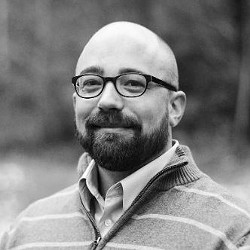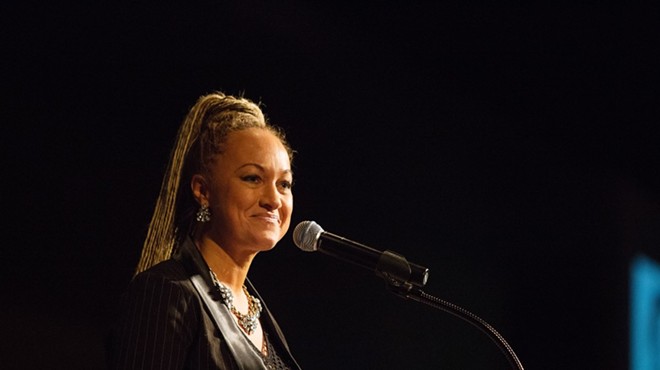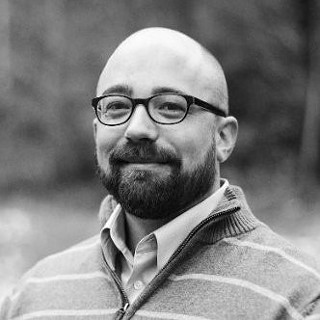The world now knows the name Rachel Dolezal. Not for her work as a local college professor, civil rights activist, NAACP chapter president or chair of Spokane’s police ombudsman commission. Rather, as her name beamed around the globe last week, it became Internet shorthand for deception and doubt, a hashtag for someone apparently born white who appropriated the culture of black America.
To us at the Inlander, she had contributed monthly freelance opinion columns for the past year, tackling vital topics like race, equality and privilege. As an independent freelancer, she wasn’t on staff and didn’t maintain a desk here; in fact, she only visited our offices a couple of times during her tenure. Nevertheless, our readers are understandably interested: How could we work with someone whose credibility — indeed, her very identity — is now being questioned?
Dolezal caught our eye last year as a vocal activist talking about important issues. She had an interesting perspective, having lived in both Idaho and Washington, and her credentials were impressive: She taught art and black studies at area universities and had worked for the reputable Human Rights Education Institute in Coeur d’Alene. We never asked about her race. Her standing as a community leader was such that in 2010, when the New York Times sent a reporter to the area to write about the Tea Party, he made sure to get a comment from Dolezal: “Ms. Dolezal, who is multiracial, said she could not imagine showing her face at a Tea Party event. To her, what stands out are the all-white crowds, the crude depictions of Mr. Obama as an African witch doctor and the signs labeling him a terrorist. ‘It would make me nervous to be there unless I went with a big group,’ she said.”
As editors, we did give special attention to Dolezal’s columns — even though they were her own opinions — because she wasn’t a trained journalist. We never told her what to write besides suggesting she stick to what she knew, mining her background in activism and academia. We gave her leeway to express herself, but fact-checked everything we possibly could and on several occasions removed sections that didn’t meet our standards.
Since concerns about her identity and truthfulness have become public, Dolezal has not returned any of our messages seeking comment. We are left wondering, like everyone else, what the whole story is. As one of the many organizations that put their faith in Dolezal, we, too, feel manipulated and deceived. We also feel empathy for Dolezal — she is a person, not an idea, and the global shaming she’s enduring is sizable — but truth is truth. For journalists especially, truth and the trust that comes from sharing it are sacrosanct, and we can provide no shelter for anyone who threatens that covenant. As a result, Dolezal no longer writes for this paper.
At the Inlander, we remain dedicated to tackling the important issues, and out of this troubling episode, we know one thing for sure: The real work Dolezal did on race and justice must not end with her. It falls to us all. We must continue to have honest conversations about race, culture, equality and the obstacles to a more just society, and we will seek a new columnist who can help us raise those issues. In the coming days, new community leaders will inevitably emerge, and we must expect of them what we expect of everyone: not personal perfection, but the truth. ♦
























